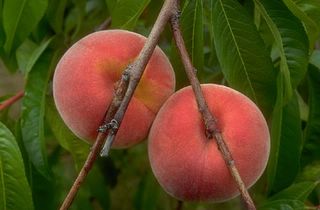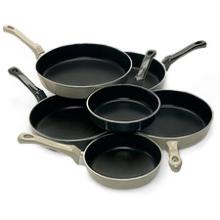
The earth is our nurturer, giving us life, land, and sustenance. Because of population growth, the demand for her gifts is ever increasing and simply living from day to day can now have a negative impact on the balance of nature. The byproduct of many needs is the release of toxic substances into the water, air, and soil. One way to minimize your impact on the earth is to try and use organic products as much as possible and to garden organically yourself if you have space. Though organic fruits and vegetables have become popular, the term "organic" can apply to any product produced from natural substances, including cloth and beauty items. Organic farming promotes a healthy earth, clean water, and healthy people. Organic products are created using natural ingredients that were grown without chemical pesticides and fertilizers; haven't been treated with preservatives, hormones, or medicines; and don't contain artificial additives. Using organic products whenever possible not only helps lessen your exposure to harmful chemicals but also helps the health of mother earth as well. Organic farming uses helpful insects to combat pests and natural fertilizers like compost and manure, or crop rotation, to keep vital nutrients in the soil. Healthy soil contains microbes beneficial to plants and thick earthy hummus that retains water, reducing the need for artificial irrigation and the rate of top soil erosion. The benefits of using organic products go far beyond health concerns. Organic farming promotes necessary biodiversity through seed collecting and by encouraging wildlife to thrive alongside humans. We have only just recently begun to understand the effects of chemical-intensive growing on the environment. Organic farming of vegetables, cotton, or any other crop, is a gentle way to reap the earth's bounty and is conducive to a healthy ecosystem. Sometimes the results are slightly more expensive, but the environmental and health costs can be much higher and increased demand for such products can help to lower prices. Your use of organic products encourages a world where birds and insects help control pests, wildlife is an essential part of farming, and nutrition takes precedence over mass production.
Taken from DailyOM - A daily source for nurturing your mind, body & spirit. Every weekday, DailyOM will send you inspirational thoughts for a happy, healthy and fulfilling day.








